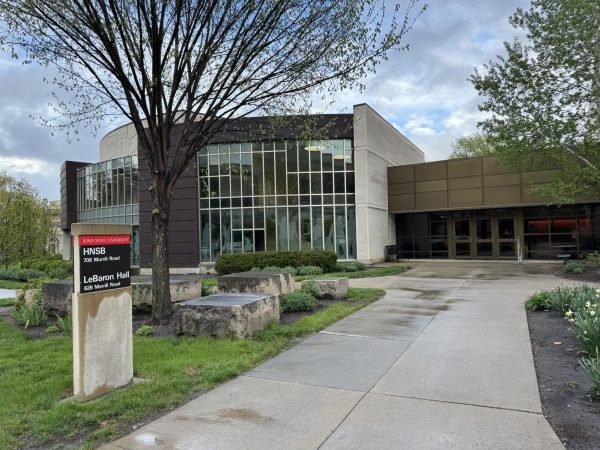Scientist says conservation is a helpful tool for impoverished nations
April 10, 2007
As many nations around the globe face famines and poverty, John Wiens, chief scientist for the Nature Conservancy, believes conservation could provide much needed help to these countries.
“We need to think more globally about [how] to set priorities for local conservation,” Wiens said in his Thursday night lecture, “From Wilderness to Wal-Mart: The Evolution of Conservation Philosophy and Practice.”
“We need to adopt a different approach.”
Outside the United States, many land reservations are not as well protected as they are in this country, Wiens pointed out, and it is an important factor to consider when planning conservation abroad.
“Protection internationally frequently means there is only an administrative line that is drawn around someplace on a map,” Wiens said. “That does not translate into any form of protection on the ground in reality.”
Wiens discussed the movement within the field of conservation from focusing on protecting wildlife and endangered species to putting valuable land and resources at highest priority.
“As conservation developed over the years and began to be formalized, the original focus was on species,” Wiens said, “things like Galapagos tortoises, particularly species that were threatened, endangered, periled, either officially or unofficially in some way.”
Scientists found efficient ways to calculate the value of benefits reaped from land reservations; they then could determine what areas of land would bring the most benefit.
“At the same time that the focus on species was developing, there was also an emphasis on places,” Wiens said. “The question then becomes, how do we save these last great places?”
Wiens said scientists can articulate the conservation problem by identifying the places that need protection in order to preserve biodiversity on Earth and distributing funds and resources to those areas.
Despite political hurtles that must be overcome, some believe it is worth it to save precious resources that are in potential land reserves.
“It can work, if people from other countries take the initiative and provide proper funding,” said Bharat Goel, senior in mechanical engineering, of encouraging conservation abroad to help solve domestic problems.
Hyrel Mathias, sophomore in pre-architecture, said it was surprising to see how the approaches to conservation have evolved since the field began.
“Looking at all of his facts and statistical data, I can really see how it has grown and changed,” Mathias said.
Manu Kapoor, junior in electrical engineering, was surprised by the amount of usable conservation land that is being harmed and destroyed close to the equator.
“I’d like to see more being done in this region, its alarming to see what is happening to the tropics, and I think more work should be done on this,” Kapoor said.
















